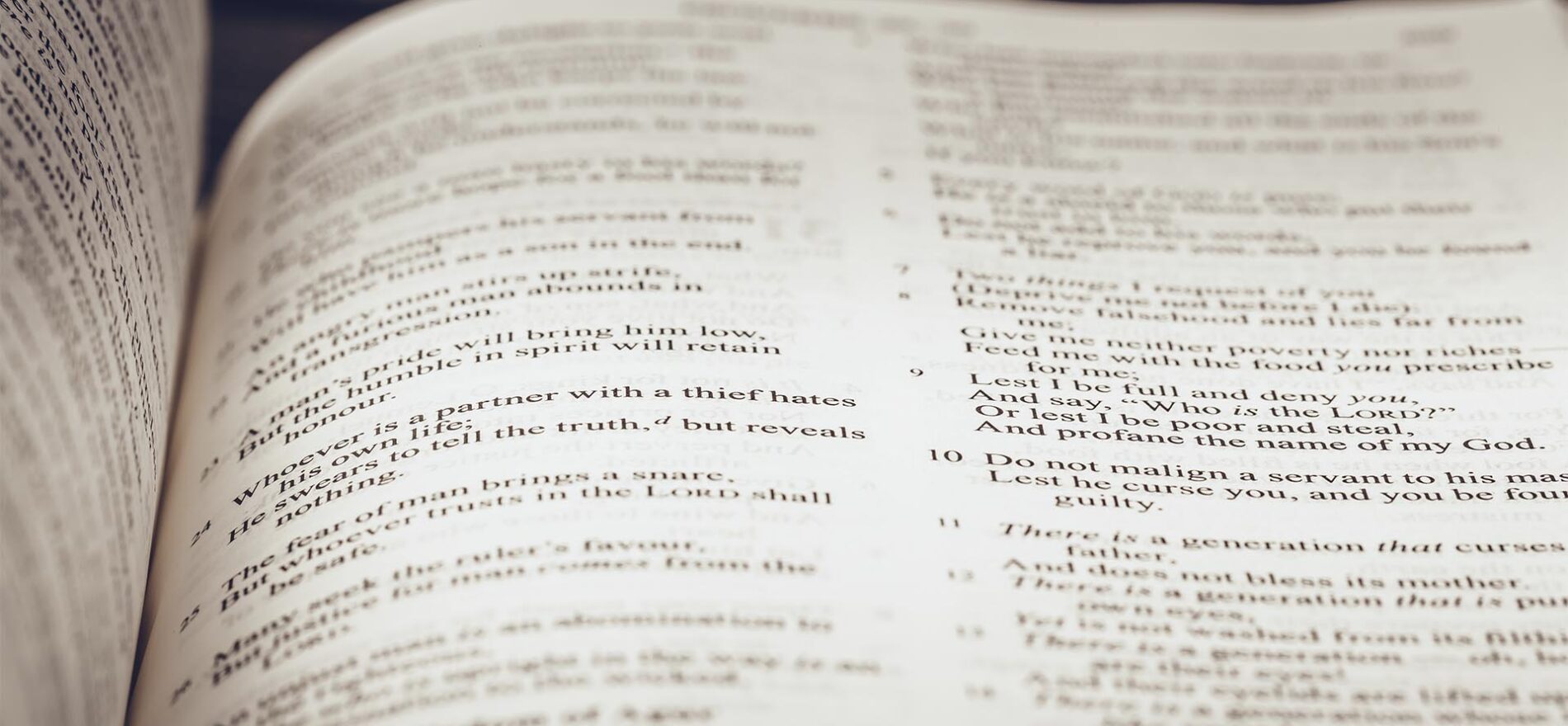On other blogs and on my podcast I’ve dealt with this subject. I even touched on it a little in the video teaching I did on worship gatherings. Prophets and prophecy remain a hot topic within some circles of the church, and I don’t suppose it’s going away any time soon. As long as there are men and women who go on YouTube, falsely prophesy about presidential elections and pandemics, then refuse to either acknowledge or recant their failed prophecies, we will have conflict over this matter. However, one good thing has arisen from the Trump and COVID prophets and that is a movement of pastors, ministers, and theologians who are calling for prophetic accountability.
Whether or not you think the Prophetic Standards Statement will be helpful, the truth is that we need to clear the air on the subject of prophets and prophecy. Two broad categories of Christians will read this article: continuists and cessationists. Continuists believe in the continued distribution and usefulness of all gifts of the Spirit, including prophecy, within the church. Cessationists generally believe that prophets and prophecy ceased not long after the death of the Apostles (along with tongues, healing, interpretation tongues, and any spiritual gift that might be called a “sign gift”). My hope for the continuists who read this is that it biblically grounds the basis and use of prophets and prophecy. My hope for the cessationists who read this is that even if you disagree, you’ll see that there is a sound biblical argument to be made for this subject, worthy of consideration.
Definitions
I like keeping things as simple as possible. A prophet is someone through whom God speaks. I cannot think of a simpler way to define it. And the things that God says through a prophet are called prophecies. What is a prophecy? Dr. Sam Storms provides a very straightforward definition: a human report of a divine revelation. Not everything a prophet says comes from divine revelation. If the prophet Isaiah told his wife (assuming he had one), “Babe, you’re going to need some help preparing dinner tonight,” that’s not prophetic. Isaiah could look at several visible, discernable factors and determine that his wife was going to need help. The kind of divine revelation we’re talking about is something the prophet could not have ascertained on his own. Prophecies are not predictions. When meteorologists predict the weather, they assemble a forecast based on available weather data. True prophecies aren’t made based on available data. So a prophet is someone through whom God speaks, and the prophecies they speak will be divinely revealed, not predictions based upon available data or cold reading. This will be our operational definition of prophet and prophecy for the remainder of this article.
The Debate
The debate over prophets and prophecy is multi-faceted. Here are the aspects we will cover in this article.
- Is the office of prophet something that continues into the New Testament church?
- Is New Testament prophecy authoritative?
- Is New Testament prophecy fallible?
- How should prophets and prophecy function in the church?
Let’s deal with each of these.
Is the office of prophet something that continues into the New Testament church?
“And he gave the apostles, the prophets, the evangelists, the shepherds and teachers, to equip the saints for the work of ministry, for building up the body of Christ,” – Ephesians 4:12-13
These two verses are widely discussed. Those who believe the LORD continues to give prophets to the church will use this verse as a basis. These two verses form what is often called the five-fold ministry. The vast majority of cessationists will contend that only evangelists, shepherds, and teachers are still given. They argue that when Paul wrote that Christ gave the apostles and the prophets, it is a reference to the twelve Apostles, plus Paul, and the Old Testament Prophets, therefore, every generation of believers are given the apostles and the prophets through their writings in the Bible. Evangelists, shepherds, and teachers would be the only gifts that need to be consistently replenished within the Body of Christ.
Continuists aren’t quite as united on how to interpret this. What they are (mostly) united on is that all five gifts are still given. It’s important to note that Paul calls these five ministries, gifts.
Therefore it says, “When he ascended on high he led a host of captives, and he gave gifts to men.” – Ephesians 4:8
Here, we should make a distinction between office and gift. There is near-universal agreement that the twelve Apostles, plus Paul, are a unique group of men whom Jesus personally and visibly called out and set apart as Apostles. There seems to be similar unity that these men held the office of Apostle. However, there are three individuals – one for sure, two maybes – who are called apostles who were not commissioned by Christ directly. For sure, Barnabas was called an apostle.
“But when the apostles Barnabas and Paul heard of it, they tore their garments and rushed out into the crowd, crying out,” – Acts 14:14
This verbiage is consistent across English translations, which usually indicates the Greek is well understood. Barnabas is called an apostle. The two maybes are Andronicus and Junias. They are maybes because there is debate on how to translate Romans 16:7.
- “Greet Andronicus and Junia, my kinsmen and my fellow prisoners. They are well known to the apostles, and they were in Christ before me.” (ESV)
- “Greet Andronicus and Junia, my fellow Jews who have been in prison with me. They are outstanding among the apostles, and they were in Christ before I was.” (NIV)
- “Greet Andronicus and Junia, my fellow Jews, who were in prison with me. They are highly respected among the apostles and became followers of Christ before I did.” (NLT)
- “Greet Andronicus and Junias, my kinsmen and my fellow prisoners, who are of note among the apostles, and who were in Christ before me.” (BLB)
Take note, also, that some translations translate Junia, and others Junias. This is contentious because Junia is feminine and Junias is masculine. Why does that matter? According to theologian, Scot McKnight…
“Junia was a woman, and she was an apostle. But since a woman couldn’t be an apostle, Junia became the male Junias … [T]here was no evidence in ancient manuscripts that anyone understood Junia as a male, no evidence in translations she was a male, and there was no ancient evidence that Junias was a man’s name. But, still, the church got into a rut and rode it out until some courageous folks said, ‘Oh yes, Junia was a woman and she was an apostle, and we’ve been wrong, and we’re going to do something about it.'” (Scot McKnight, Junia is Not Alone: Breaking Our Silence About Women in the Bible and the Church Today)
Why is this relevant to our discussion? Here’s why. If Andronicus and Junia are not apostles, why would translators be concerned with changing Junia, a woman, to Junias, a man? Now, this certainly has ties to other matters, but for our purposes here it seems that the concern of translators over the centuries around Romans 16:7 was that Andronicus and Junia were likely apostles, so they assumed Junia was actually Junias. Therefore, the logic goes, if the LORD continued to gift the church with apostles apart from the original twelve, then he has also continued gifting the church with prophets. Now, let’s return to prophets.
Gift or office? And is there a distinction?
Let’s be clear on one matter. The word office never appears in association with the role of prophet. We employ it because the Old Testament seems to demonstrate that God raised up prophets whose job was to serve the king. Nathan was King David’s prophet. Ahijah was Solomon’s prophet. Elijah and Elisha both were prophets in Israel for King Ahab, although it was an adversarial relationship. These men were prophets who had particular callings to prophesy to Israel and Judah’s kings. So we associate their position with an office. Not only that but there was the school of the prophets where men were presumably trained as prophets, with the hopes of serving the nation as a voice of the LORD. This too implies a kind of public office.
But typically we associate the office of prophet with men whom the LORD used to pen Scripture. However, I’m confident that authoring Scripture is not the sole qualification for holding the office. Nathan, Ahijah, Elijah, and Elisha did not author any Scripture, but it’s clear that they held the office. However, regardless of how you understand Old Testament prophets, Hebrews 1:1-2 brings some finality to the matter.
“Long ago, at many times and in many ways, God spoke to our fathers by the prophets, but in these last days he has spoken to us by his Son, whom he appointed the heir of all things, through whom also he created the world.” Hebrews 1:1-2
We no longer need prophets in the Old Testament sense of the word because Jesus Christ is the fulfillment of those prophets. In a sense, He is the ultimate and final man to hold the office of prophet, and because He is alive forevermore, the office is forevermore filled.
Yes. There is a distinction between office and gift. Jesus holds the office of prophet forever. Yet He gifts the church with prophets. So we have answered our question. The office of prophet does not continue into the New Testament church. But we have created another question. What do we say about New Testament prophets? They do exist, they are recorded in Scripture, and Paul’s letters tell us to expect them to be given as a gift to the church. I believe the remaining questions we’ll answer will help us understand.
Is New Testament prophecy authoritative?
Since Jesus is still gifting the church with prophets, are their prophecies authoritative? In other words, are they to be held in the same regard as Scripture? Should we seek to obey their prophecies in the same way that we obey the written Word? I’ll answer the question, then explain. No. We do not hold prophecies from New Testament prophets as authoritative. They are not of the same authority as Scripture.
First, we cannot hold them of the same authority as Scripture because the Word itself bans additions and subtractions from what has been written.
“I warn everyone who hears the words of the prophecy of this book: if anyone adds to them, God will add to him the plagues described in this book, and if anyone takes away from the words of the book of this prophecy, God will take away his share in the tree of life and in the holy city, which are described in this book.” Revelation 22:18-19
Some object that the scope of this verse is limited to the book of Revelation. Fair enough, but I don’t agree. We don’t apply such restrictions to other passages. We would never say that what Paul said in Ephesians only applied to the men and women of the Ephesian church. However, this isn’t the only verse that I rely on to build my argument, so let’s move on.
Second, we are commanded to test prophecies.
“Do not despise prophecies, but test everything; hold fast what is good.” – 1 Thessalonians 5:20
“Let two or three prophets speak, and let the others weigh what is said.” – 1 Corinthians 14:29
Nowhere are we ever commanded to test the written Word, yet we are told to test prophecies. Against what?
“…that you may learn by us not to go beyond what is written…” – 1 Corinthians 4:6
Everything is tested by what is written. The written Word is the final authority on all things, including prophecies. If prophecies are tested and measured by the Word, then they cannot be equal to the Scriptures in authority.
Third, women may prophesy in the church gathering. I have to be honest and tell you that I didn’t arrive at this conclusion in a study of prophecy. For a long time, I’ve sought to find coherence between Paul’s permission for women to prophesy and pray in 1 Corinthians 11 and his prohibition for women teaching in 1 Timothy 2. Here are both verses.
“but every wife who prays or prophesies with her head uncovered dishonors her head, since it is the same as if her head were shaven.” – 1 Corinthians 11:5
“I do not permit a woman to teach or to exercise authority over a man; rather, she is to remain quiet.” 1 Timothy 2:12
Paul implies in 1 Corinthians that women have the freedom to pray and prophesy in church gatherings. But then he seems to reverse his decision in 1 Timothy by saying women should not teach and remain quiet. Then it occurred to me. The difference lies in the activity. If women cannot teach but are allowed to prophesy, then it has to do with the authority of what they are saying. Paul does not permit women to teach Scripture to men because teaching is an authoritative role since you’re explaining the written Word. But prophecy does not carry the same authority as Scripture, therefore women are permitted to prophesy. That doesn’t mean prophecy is unimportant or irrelevant since we are told very clearly, do not despise prophecy. It only means that Scripture is higher and greater than prophetic utterances from prophets. Why? The next question will shed light.
Is New Testament prophecy fallible?
Can a prophet be wrong? Many say no and appeal to this passage:
“But the prophet who presumes to speak a word in my name that I have not commanded him to speak, or who speaks in the name of other gods, that same prophet shall die. And if you say in your heart, ‘How may we know the word that the LORD has not spoken?’— when a prophet speaks in the name of the LORD, if the word does not come to pass or come true, that is a word that the LORD has not spoken; the prophet has spoken it presumptuously. You need not be afraid of him.” – Deuteronomy 18:20-22
Context is king and here the context cancels the appeal that many make. This passage is talking about the prophet who will be like Moses. Moses told the Israelites that the LORD would raise up another prophet like Him to lead the nation. This passage speaks of a particular prophet, not any and all prophets who may come along. This particular prophet will seek to lead the nation of Israel.
The second appeal may be to this:
“If a prophet or a dreamer of dreams arises among you and gives you a sign or a wonder, and the sign or wonder that he tells you comes to pass, and if he says, ‘Let us go after other gods,’ which you have not known, ‘and let us serve them,’ …that prophet or that dreamer of dreams shall be put to death, because he has taught rebellion against the LORD your God” Deuteronomy 13:1-2, 5
Again, we’re not talking about the same thing. In this case, the prophet actually prophesies correctly, but then tries to lead Israel to serve another god. This is not a case of an incorrect prophecy. And 18:20-22 isn’t a case for any and all prophets, but for a particular prophet who aspires to lead the nation. So appeals to the Law still don’t eliminate the possibility that a prophet can occasionally be wrong. Case and point.
“Now when the king lived in his house and the LORD had given him rest from all his surrounding enemies, the king said to Nathan the prophet, ‘See now, I dwell in a house of cedar, but the ark of God dwells in a tent.’ And Nathan said to the king, ‘Go, do all that is in your heart, for the LORD is with you.'” – 2 Samuel 7:1-3
The prophet Nathan got it wrong. Some contend that he wasn’t speaking in his official prophetic capacity. Yet, it appears that King David sought Nathan for the expressed purpose of getting a word from the LORD over his desire to build a temple. Then Nathan tells him, the LORD is with you. But that was wrong. The LORD didn’t want David to build. The statement, the LORD is with you, at least presumes that Nathan believed he knew God’s heart on the matter. I don’t think saying that he wasn’t answering David in his prophetic capacity is coherent.
[EDIT 2/7/23: After some discussion and further thought, I feel compelled to add this qualifier. I cannot dogmatically say that David was seeking Nathan’s prophetic word on this matter. I’m not completely convinced he wasn’t, but now I’m not as convinced that he was. I don’t think it changes the points that I continue to make below, but it might affect how you digest what I say, so I thought I should add this qualifier.]
That’s one instance, but it is enough to give us a precedent. However, before I proceed I need to make something crystal clear. The written Word is infallible. When I say that prophets can be wrong, I’m by no means casting shade on the written Word. What is written is inspired. It just so happens that the inspired Word includes this instance where Nathan missed the mark. Any writing inspired by the LORD will be infallible. However, writings that didn’t make it into Scripture were not inspired and can’t be trusted as infallible. It just so happens that Nathan and Ahijah were authors.
“Now the rest of the acts of Solomon, from first to last, are they not written in the history of Nathan the prophet, and in the prophecy of Ahijah the Shilonite, and in the visions of Iddo the seer concerning Jeroboam the son of Nebat?” – 2 Chronicles 9:29
These men were prophets, yet their books were not inspired. Only inspired work can be considered infallible. So the door remains open that prophets can [possibly] prophesy amiss. But we can say with confidence that the writings of the prophets (Isaiah, Jeremiah, Ezekiel, etc) within the pages of Scripture are inspired and therefore infallible. With that in mind, since the canon of Scripture is closed and no new inspired writings are being authored, prophets throughout the church age cannot prophesy with infallibility. The prophets that are gifted to the church do not prophesy with inspired authority, which is why, as was said earlier, Scripture commands that all prophecies must be tested.
How should prophets and prophecy function in the church?
So far, I’ve given you a Biblical case that Christ continues gifting the church with prophets, and that their prophecies are neither authoritative nor infallible. That probably brings up a valid question. If New Testament prophets are neither authoritative nor infallible, what’s the point? Some cessationists ask the same question, and I don’t blame them. However, that question assumes that the role of prophecy remains the same from the Old to New Testaments.
It doesn’t.
First, in the Old Testament men and women were not indwelled by the Holy Spirit as in the New Testament. The role of the prophet prior to Christ was to clearly communicate the LORD’s desires to the people because he had the Holy Spirit, while others did not. Now every believer is indwelled with the Holy Spirit and can hear from the LORD without an intermediary. The Holy Spirit interprets the Scripture, gives us the wisdom to apply the Scripture, and speaks to each of us directly on daily matters that don’t have a chapter and verse to help us. We don’t need prophets who operate under the same mandate as Old Testament prophets.
Second, Paul gives us the primary function of prophecy within the church in 1 Corinthians 14.
“On the other hand, the one who prophesies speaks to people for their upbuilding and encouragement and consolation.” – 1 Corinthians 14:3
This tells us that the primary function of New Testament prophecy is for upbuilding, encouragement, and consolation. Prophecy builds up. Prophecy encourages. Prophecy consoles. Knowing that is helpful because if you encounter a self-proclaimed prophet who seldom does those things, you’re dealing with a false prophet. I know men who others have called prophetic, but most of everything they say is a warning, nay-saying, critical, negative, and picking apart everything that goes on in the church. Those people aren’t prophets. They’re cynics. These men and women read the Old Testament prophets, pick up on the LORD’s anger, and become a kind of angry prophet themselves.
That isn’t what Paul describes. I’m not suggesting that prophecy doesn’t at times include corrections. Correction can and often is a vital part of building someone up. You bring a correction to them in the hope that it will help them continue growing. But Paul’s three-fold description of prophecy is only one-third up-building. Encouragement and consolation constitute the other two-thirds of prophetic ministry. I’m not inclined to listen to a “prophet” who seldom encourages or consoles others.
So yes, the role of prophet has changed. How then should they function in the church? Paul believes they serve a vital role.
“But if all prophesy, and an unbeliever or outsider enters, he is convicted by all, he is called to account by all, the secrets of his heart are disclosed, and so, falling on his face, he will worship God and declare that God is really among you.” – 1 Corinthians 14:24-25
Some take this as hyperbole. I suppose that’s not wrong, but I believe Paul is pointing us to a startling reality. God can use any believer to prophesy. This is another way the role of the prophet has changed from the Old Testament. Prophecy isn’t limited to select people, but all believers are potential prophets because they are indwelled with the Holy Spirit. And if all prophesy – let me rephrase that. If everyone builds up, encourages, and consoles one another when we gather, something amazing happens. Outsiders will see and hear, and the secrets of their hearts will be disclosed and they will become worshipers of the LORD!
Now, this doesn’t mean we offer kind of generic platitudes and niceties to each other. There is a kind of building up, encouragement, and consolation that is easy to do. If you arrive at church on Sunday and see a person weeping, a hug or a listening ear is easy to do, but it isn’t necessarily prophetic. For our interactions to be prophetic, they must be led by the Holy Spirit. Remember our definition? Prophets are people through whom God speaks. Prophecies are human reports of divine revelation. So just being generally nice, compassionate, and interested in others doesn’t mean you’re speaking prophetically to them. We must become practiced at letting the Holy Spirit lead our conversations. That indeed does take practice and discipline.
Now, Paul does say in 1 Corinthians 12:29, “Are all prophets?” It’s a rhetorical question. The answer is no. Not everyone will be prophets. However, not everyone is gifted with the spiritual gift of generosity, or mercy, or faith, yet every believer is expected to be generous, merciful, and faithful. Likewise, there are those who walk more consistently in a prophetic gift whom we might say have the gift of prophet, but every believer may be used prophetically at one time or another.
For those who walk more consistently in prophetic gifting, Paul says they may speak to the entire congregation, but only two or three at any gathering.
“Let two or three prophets speak, and let the others weigh what is said.” – 1 Corinthians 14:29
Note: what they say is to be tested at that moment. Again, the Scripture is the authority by which we test. It would seem though, that by 14:24-25, everyone in the gathering should come prepared to build up, encourage, or console others. The ideal, then, is that the LORD will use many in the gathering to speak prophetically to one another, and the ones who are recognized by the body as more consistent with prophecies may address the whole congregation.
What now?
My goal here has been to clearly present my best biblical understanding of how prophets and prophecies are to function in the Body of Christ. I hope I’ve done that. I acknowledge that there are many practical aspects that can be addressed. I also acknowledge that my cessationist readers may remain unconvinced. I understand. I was once in your shoes. And even though I’m now a continuist, I share many of your reservations about the abuses that happen in the name of prophecy. So I really do understand the impulse to reject prophets and prophecy altogether. After all, if we all have the Holy Spirit, why do we need prophets?
My only answer to that is because the Word tells us we do. Whether I think I need prophets or not isn’t relevant. Jesus gives us prophets because we do need them. It’s my own overconfidence that tells me I don’t. Some will argue that the Scriptures are sufficient and we need nothing else. I agree, but the sufficient Scriptures tell us that prophetic utterances are a part of a healthy church. If I believe in the sufficiency of Scripture, then I must accept that prophecy is a gift that the LORD gives and uses to upbuild, encourage, and console His church.
Let me conclude with four personal thoughts. First, since the office of prophet is forever filled by Jesus, churches need not try to incorporate the office of the prophet into their leadership structures. Because Christ lives in each of us, the prophetic voice comes from the church as a whole, not just one individual. According to Paul’s writings, it would seem that a local church can have multiple prophets. But here’s the real kicker. When Paul went around planting churches, he appointed elders to lead the church. The leadership of a church does not depend on a five-fold ministry that includes prophets. It depends on godly, qualified elders who may choose to seek counsel from men and women who have a track record of accurate prophecies.
Second, I believe that every gift the LORD gives to us can experience growth and sharpening. In the case of prophecy, sharpening this gift is not done through classes or online training, or seminars. It is done in your private time with the LORD. Speaking prophetically depends largely on discerning the voice of the Holy Spirit from your own thoughts and imaginations. Therefore, as you learn to recognize His voice in your personal walk, you’ll be able to hear Him when He asks you to say or do something for someone else. Once you can discern Him from you, all that’s required is the boldness to walk in obedience.
Third, one of the biggest problems facing continuists with the gift of prophecy is what I mentioned at the beginning. People, who may well be brothers and sisters in Christ but are overzealous for influence, who get on YouTube and make national-level predictions for each year. I’m automatically skeptical of those men and women because they are presuming to assume the office of an Old Testament prophet by making national prophecies. The idea of a national prophet is over. The New Testament is SO CLEAR that prophets and prophecies are for the benefit of the local church. All spiritual gifts are given for the common good of each local gathering of the Body of Christ, including prophecies. I won’t go as far as to call these men and women heretics or wolves because I don’t know them, all I see is the YouTube clips. But I will definitely say they are out of order and prophesying falsely.
That leads me to one subpoint on that issue. Because we are to test all prophecies, that means all true prophecies will be testable. If a supposed prophecy is too vague to test, it’s not prophetic. It might be heartfelt, or it might be something that excites you, but if you cannot test it, it is not prophetic. Much of what gets said by YouTube prophets are too vague to test. (Here’s the only name I will drop) And many pointed out that Chuck Pierce accurately predicted plague conditions for 2020 in the year 2019. But the guys at Remnant Radio dug this out and discovered that his plague prediction was sandwiched in a bunch of stuff that never happened! It seems to me that he threw a bunch of stuff at the wall and one of them actually stuck. The bottom line is every year contains the possibility of bad stuff. Plagues, economic collapse, war, etc. are ALWAYS on the verge of happening because… JESUS ALREADY SAID WE WILL SEE THOSE THINGS!! Sorry, I get a little angry about this because it brings reproach on the name of Christ. Bottom line, YouTube prophets making national predictions are out of order for the New Testament use of prophecy.
Lastly, I think there’s a confusion of terms at work between some cessationists and continuists. Cessationists may not believe prophecy continues, but personally, I think they do, but they don’t know it. What some call impressions or unctions of the Spirit, I say is a matter of semantics. In many cases, impressions and unctions are functionally the same as prophecy. People who “feel led” to say something or do something and call it an impression are experiencing something similar, if not the same thing, as people who say they’ve received prophetic words.
Thank you for taking the time to read this. As in all things, this is where my best understanding has led me as of today. I’m always learning and always open to discussion. Don’t hesitate to leave a question in the comments and I’ll do my best to offer a reasonable answer.














This is one of my favorite passages in times of despair and limbo. Verse 17 is so encouraging. God told…